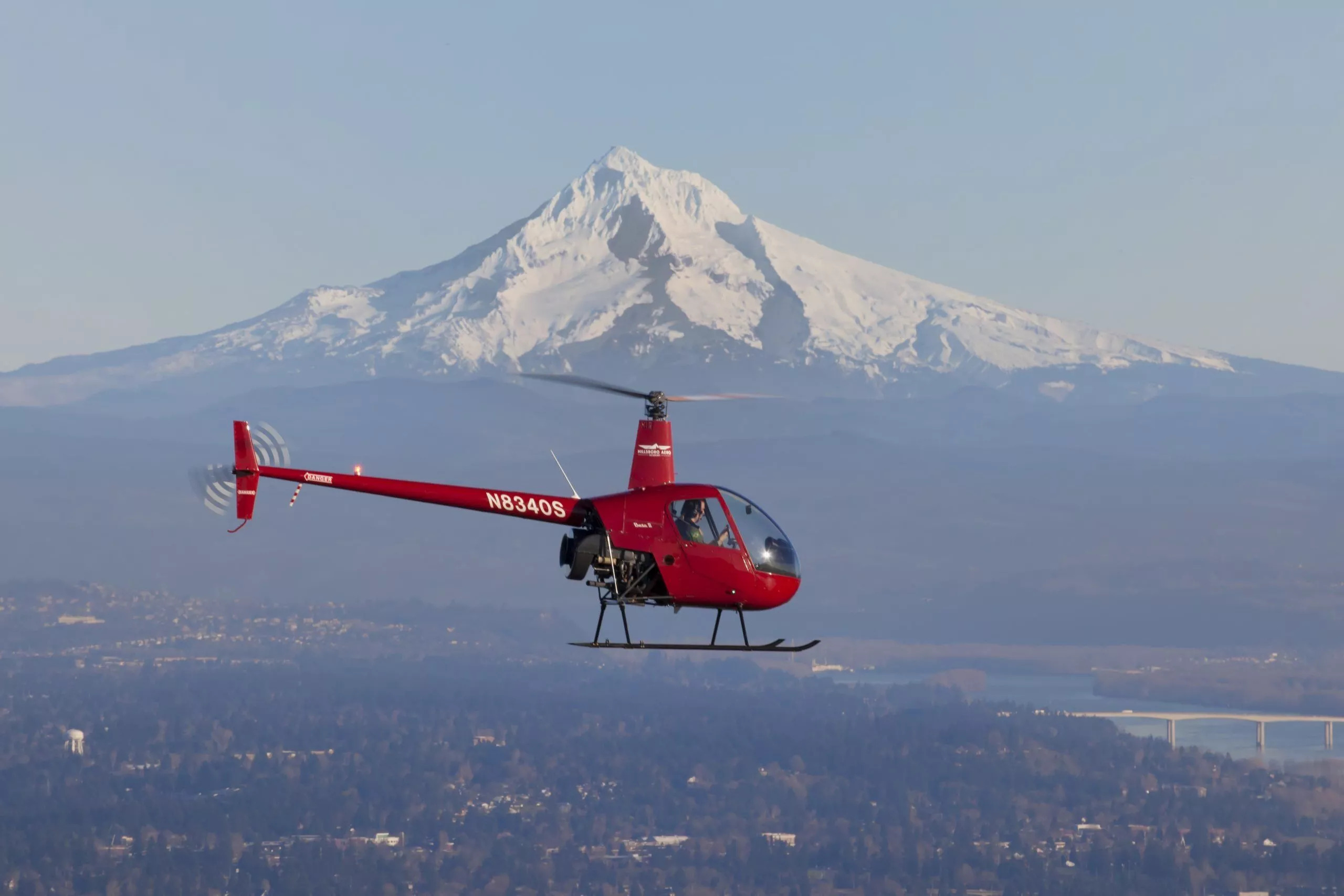Written for Insight Magazine – Heli-Expo 2023
It all started in 1980 with one helicopter and one instructor and has since grown into an internationally renowned helicopter school.
Hillsboro Heli Academy’s success comes from a simple recipe – an extreme focus on teaching the fundamentals.
“That’s what I drive home to our instructors, that there’s a foundation that needs to be built,” said Jared Friend, Hillsboro’s director of helicopter operations and chief instructor.
“Our reputation with employers and the success of our graduates is built around getting the foundation right and not getting distracted, while recognizing that every student is a little bit different, every student has a different motivation.”
Hillsboro is considered one of the larger helicopter flight schools in the United States. But even with that scale, Friend points to the culture of his operation as a key enabler of his students’ performance and success in their careers.
“We foster a family environment and encourage our groups of new students to become a close-knit team.
It starts from day one at their first orientation. We talk to them about how the people sitting next to them, they’re probably going to know each other for the rest of their careers.”
In addition to FAA approval as a FAR Part 141 and Part 61 flight school, Hillsboro is nationally recognized by the Accrediting Commission of Career Schools and Colleges as one of only two non-degree helicopter schools accredited in the United States.
Over more than four decades, the school has graduated thousands of pilots from over 55 countries, welcoming international students under the F-1 visa program.
The well-established flight-training facility is based at Troutdale Airport on the shore of the Columbia River, just east of Portland, Oregon’s international airport.
“We’re in a helicopter pilot’s playground,” said Friend.
Within an hour’s flight time, Hillsboro’s students can be practicing operations in the Cascade Mountains, the Columbia River gorge, the state’s high desert to the east, or to the west on Oregon’s spectacular Pacific coast.
From day one, Hillsboro has operated Robinson helicopters.
“Our history is also Robinson’s history. The first production R22 was certified in 1979. We got ours in 1980 and we’ve been flying them ever since,” said Friend.
“We have a lot of history with the Robinsons, a lot of lessons learned.”
Hillsboro has a fleet of R22s and R44s, is a certified Robinson Service Center and operates an FAA Part 145 repair station at its Troutdale base.
After 12 to 18 months on course, when a student graduates as a 200-hour certified flight instructor with an instrument rating, they have the depth of experience that comes from flying in the diverse terrain and weather in the U.S. Pacific Northwest.
“A lot of our pilots end up in the Gulf, or flying utility work in the mountains, and pilots who learn to fly with us are sought after by employers for the variety of experience they have gained at Hillsboro.
Sure, it’s great to fly on a sunny, blue-sky day, but to be a truly well-rounded helicopter pilot you need to be comfortable flying in all types of weather.
One of the greatest skills our graduates gain is working through the decision-making process for a flight – interpreting weather reports, knowing their own limitations and making good decisions. That’s what professional pilot training is all about,” said Friend.
Developing that level of judgement is a key element of Hillsboro’s cohesive strategy, which includes training continuity for instructors and students, to ensure a successful outcome for the students.
“We try to have students fly with their instructor every single day the instructor is available.
We feel it’s a strong building block to be flying every day, so that a student can build on the previous day’s lessons. If a student has gaps in their flight training, they’ll have to fill those gaps somehow, and that ends up costing more money.”
For graduates, the next career step is invariably an instructor position to build time. Some are hired at Hillsboro, and with their hours in the ubiquitous Robinsons, others are well-prepared to work at just about any school.
But for some, opportunities come from Hillsboro’s relationships with companies including German HEMS operator ADAC Luftrettung, Bristow Norway, and Babcock Spain.
“Right now, there’s a huge helicopter pilot shortage,” said Friend. “We work to connect our graduates with operators around the world, and help them get to know people in the industry.
We’ve been doing this for over four decades – and we’re good at it.”
